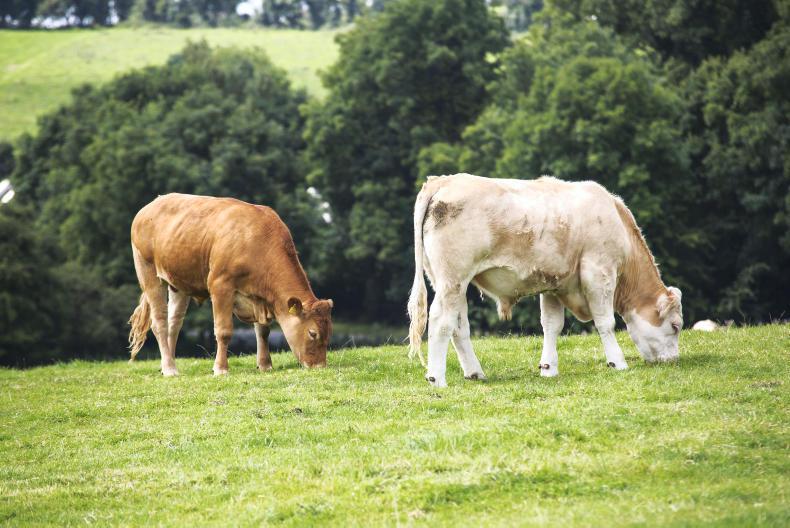Where castration is to be carried out on-farm without an anaesthetic, it needs to be completed before the animal reaches six months of age.
If you are planning to castrate male animals in the next couple of weeks, one of the first steps is to ensure that the animals have received a clostridial vaccine, especially if banding is taking place. Make sure the vaccine covers tetanus.
The primary course and booster vaccine should be given four to six weeks apart. If using a burdizzo, it is advisable to crush the spermatic cord twice, one below the other, for 10 seconds each time. Completing this job well in advance of weaning will also decrease the amount of stress put on the animal.
Monitor animals after castration for signs of swelling and watch for animals lying on their own and not grazing. Having good handling facilities is extremely important for this job and having good help will also reduce the chances of getting injured during the process.
Farm safety
Are there signs around the yard highlighting dangers to people? Is the first aid kit well stocked up and does everyone on the farm know where it is stored?
Are all slurry tank manhole covers in good condition? These are just a few simple questions to ask. Take 10 minutes this week to think and talk about farm safety.
Read more
Keep mart open – Carnaross farmers
Growth weakens slightly but still exceeds demand
Where castration is to be carried out on-farm without an anaesthetic, it needs to be completed before the animal reaches six months of age.
If you are planning to castrate male animals in the next couple of weeks, one of the first steps is to ensure that the animals have received a clostridial vaccine, especially if banding is taking place. Make sure the vaccine covers tetanus.
The primary course and booster vaccine should be given four to six weeks apart. If using a burdizzo, it is advisable to crush the spermatic cord twice, one below the other, for 10 seconds each time. Completing this job well in advance of weaning will also decrease the amount of stress put on the animal.
Monitor animals after castration for signs of swelling and watch for animals lying on their own and not grazing. Having good handling facilities is extremely important for this job and having good help will also reduce the chances of getting injured during the process.
Farm safety
Are there signs around the yard highlighting dangers to people? Is the first aid kit well stocked up and does everyone on the farm know where it is stored?
Are all slurry tank manhole covers in good condition? These are just a few simple questions to ask. Take 10 minutes this week to think and talk about farm safety.
Read more
Keep mart open – Carnaross farmers
Growth weakens slightly but still exceeds demand






 This is a subscriber-only article
This is a subscriber-only article










SHARING OPTIONS: